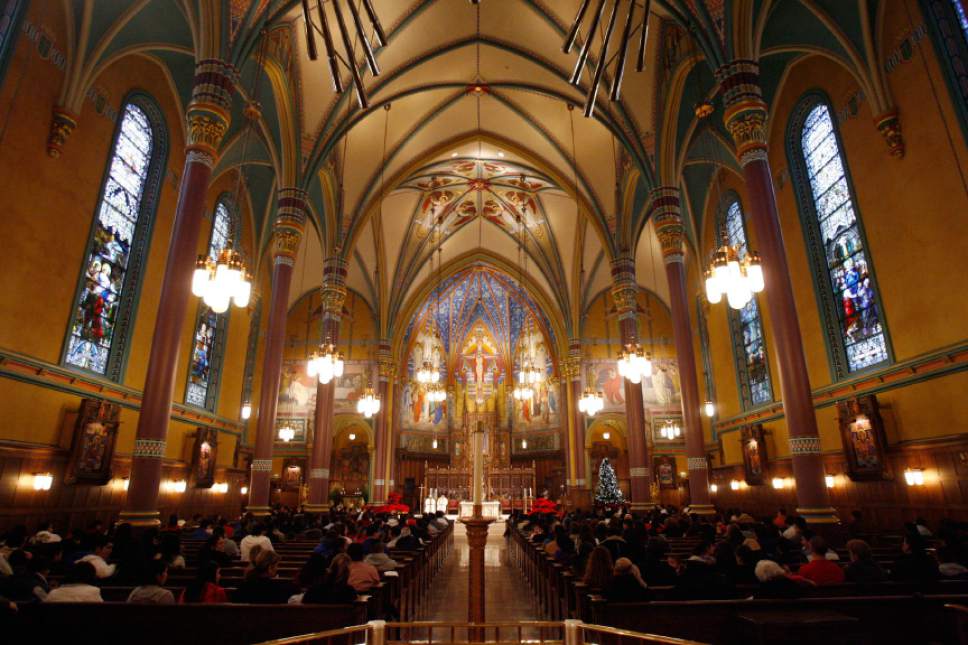This is an archived article that was published on sltrib.com in 2016, and information in the article may be outdated. It is provided only for personal research purposes and may not be reprinted.
Standing in front of a row of Christmas trees in Wisconsin last week, President-elect Donald Trump repeated one of his campaign trail promises:
"When I started 18 months ago," Trump said, "I told my first crowd in Wisconsin that we are going to come back here some day and we are going to say 'Merry Christmas' again. … So Merry Christmas, everyone. Happy New Year, but Merry Christmas."
But Americans remain split on whether they prefer to be met in stores with "Merry Christmas" or a more general greeting like "Happy Holidays," according to poll results released Monday by Public Religion Research Institute.
The poll found 47 percent of Americans say stores and other businesses should use "Happy Holidays" or "Season's Greetings" out of respect for people of non-Christian faiths, while 46 percent say they should not. Those results have not changed much since 2010, when those numbers were 44 percent and 49 percent, respectively, according to PRRI.
Still, Americans' answers reveal divides by religion, politics and age.
Nearly two-thirds of white evangelical Protestants and 58 percent of Catholics preferred "Merry Christmas," while similar numbers of nonwhite Protestants (56 percent) and religiously unaffiliated Americans (58 percent) preferred an all-inclusive greeting, according to the poll.
White mainline Protestants closely mirrored national numbers with 48 percent preferring "Merry Christmas" and 46 percent, "Happy Holidays."
Republicans were as likely to support "Merry Christmas" (67 percent) as Democrats were to support "Happy Holidays" (66 percent). And young adults ages 18 to 29 were more likely to support nonspecific greetings (67 percent), while adults aged 65 and older wanted to hear "Merry Christmas" (54 percent).
Greetings notwithstanding, Christmas is the most popularly celebrated holiday in a month packed with festivities.
Nearly nine in 10 (89 percent) Americans say they will celebrate the birth of Jesus this December. Another 4 percent say they will celebrate Advent, 3 percent will celebrate Hanukkah or the winter solstice and 1 percent, Kwanzaa, according to PRRI.
That comes as the number of Americans celebrating Christmas as a secular holiday, more about Santa Claus and elves and reindeer and presents, has jumped to 27 percent this year, up from 19 percent who said their observance was "not too religious" in 2005.
Four percent of Americans say they will not celebrate any holidays this month, according to poll results.
PRRI surveyed 1,004 Americans ages 18 and older via telephone between Dec. 7 and 11, according to the organization. The margin of error for the poll is plus or minus 3.6 percentage points.



